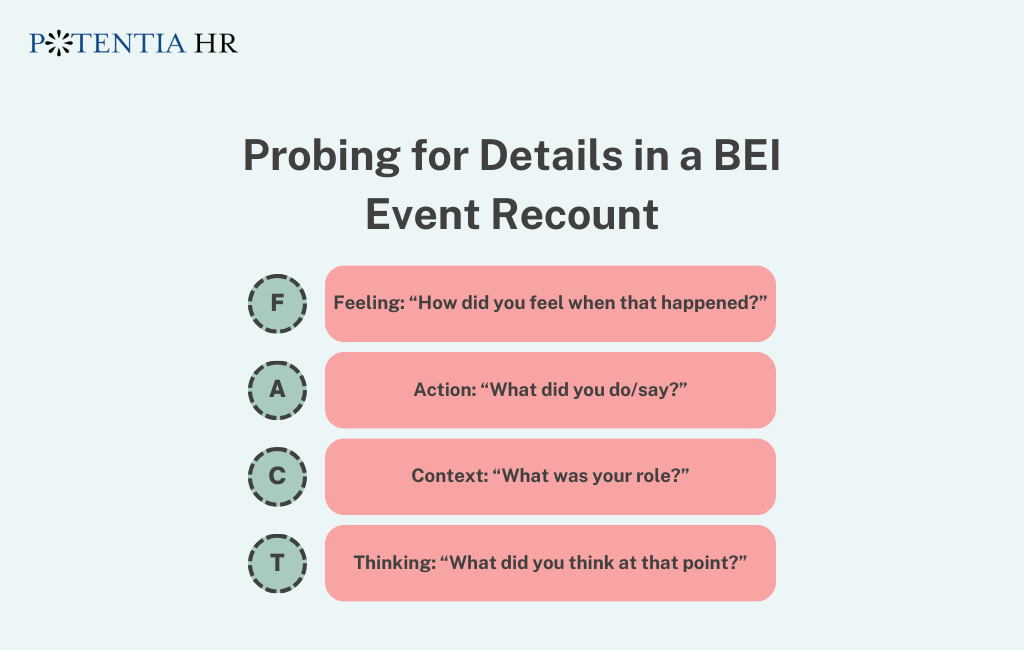As a recruiter, our daily tasks are to conduct interviews with candidates and capitalize on the short time allocated to each person. Because of the repetitive nature of recruiting – it is easy for important details to be brushed over or missed in the process. At Potentia, our consultants use Behavioral Event Interviewing techniques to cut through the ‘smoke and mirrors’ and better assess how candidates really behave and what they really contribute to the workplace. This ensures that the most critical information is collected in every interview.
What is BEI?
BEI is a structured process of interviewing candidates that collects real world experiences and applies them to specific competencies needed to successfully perform in any given job. These given competencies were founded based on the characteristics of top performers and how they approach their work in the most effective way.
Competencies may include communication, leadership, problem solving, information seeking, creativity, delegation and many more. The process of BEI allows recruiters to unveil a candidate’s traits and capabilities as well as any technical skills and knowledge relevant to the role. BEI aims to probe candidates for information regarding “who they are” and “how they do what they do”.
The main part of a BEI interview involves asking the interviewee to recount specific events from their career, both a time they have experienced success and a disappointment. It is important to clearly instruct the candidate on expectations for these events. Key expectations should include that it is a recent and specific event (within the last 2 years) and that there is clear personal involvement (use of “I”).
Probing for Details in BEI Event Recount
Recruiters should probe for ‘FACT’ within a candidate’s story by using the following process.

The holy grail of the BEI is what we call codable information. This is what the interviewer is seeking to measure the candidate’s level of competency.
Codable Information is:
- Non-hypothetical; it actually occurred.
- Detailed and specific
- Clearly attributable to the candidate (via use of “I” instead of “we”)
Codable information is then used to score candidates based on their level of competency. This results in an objective assessment rather than subjective judgements or “feelings” that a recruiter may get.
Examples of Focus Questions
- Describe a time when you led a group to accomplish a particular objective?
- Tell me about a time when you had to gather information to ensure the success of a task.
- Describe a time when you used creativity to solve a problem in the workplace.
Each of the questions above relate to a critical competency that may be sought by organizations.

In summary, the BEI process is gaining popularity in organizations seeking to involve more objective and evidence-based approaches to their hiring process. The process of using core competencies to predict job performance is becoming widely renowned for its effectiveness in finding top performers to suit job positions.
Written by: Nicola Gregory